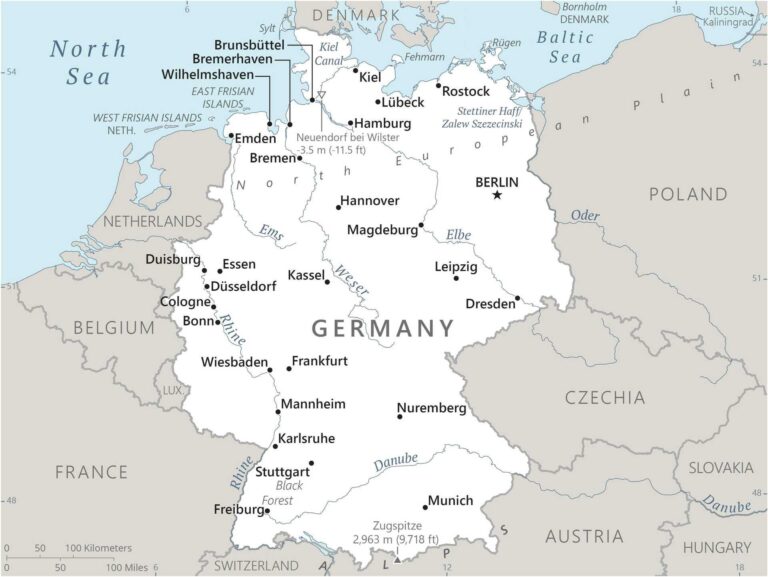Germany remains uncertain about supporting new European Union sanctions against Israel, reflecting ongoing divisions within the bloc over how to address escalating tensions in the region. As debates continue, Berlin’s cautious stance highlights the complex balance between diplomatic relations, regional security concerns, and the EU’s collective foreign policy strategy. This indecision comes amid mounting pressure from various EU member states and international actors urging a firmer response to recent developments on the ground.
Germany’s Ambivalence Reflects Deep Divisions Over Israel Policy
Germany’s stance on potential EU sanctions against Israel illustrates a complex balancing act influenced by a spectrum of political and social factors within the country. On one side, there is significant pressure from within the ruling coalition to uphold Germany’s historically strong support for Israel, emphasizing security cooperation and shared democratic values. On the other, growing vocal opposition from humanitarian groups and segments of the public urge for firmer action in response to recent escalations in the Israeli-Palestinian conflict, reflecting deep concerns about human rights and international law.
- Political fragmentation: Internal debates highlight divisions among major parties, with some advocating restraint and others pushing for a more decisive EU stance.
- Public opinion: Polls reveal a polarized populace, with roughly equal shares opposing or supporting sanction measures.
- Economic considerations: Germany’s trade ties with Israel complicate potential sanctions, making decision-makers wary of unintended consequences.
| Aspect | Support for Sanctions | Opposition to Sanctions |
|---|---|---|
| Political Parties | Left-wing factions | Conservatives, Christian Democrats |
| Public Sentiment | 43% | 45% |
| Economic Impact Concern | Low | High |
Economic and Diplomatic Implications Loom Large in Berlin’s Decision-Making
Berlin’s hesitation over endorsing EU sanctions against Israel reflects a complex calculus balancing economic interests and diplomatic relations. Germany maintains a robust trade partnership with Israel, with bilateral trade volume surpassing €15 billion in recent years. This economic entanglement heavily weighs on policymakers, who are wary of the potential blowback to German industries and exporters if sanctions disrupt this mutually beneficial relationship. The technology and defense sectors, in particular, are seen as vulnerable, given their strategic importance to both nations.
On the diplomatic front, Germany faces mounting pressure from within the EU bloc and from international allies advocating for a unified stance. However, Berlin remains cautious, mindful of its historic responsibilities while striving to uphold a balanced foreign policy mediating between solidarity with Israel and commitment to human rights. Key considerations influencing Germany’s stance include:
- Preserving regional stability: Avoiding escalations that could destabilize the Middle East.
- Strengthening EU unity: Navigating differing views among member states on the sanctions.
- Maintaining transatlantic relations: Aligning with U.S. policies without alienating EU partners.
| Factor | Potential Impact |
|---|---|
| Trade Disruptions | Loss of €1.5B in exports annually |
| Defense Cooperation | Possible delays in joint projects |
| EU Cohesion | Risk of fragmented policy signals |
| Public Opinion | Divided views across German society |
Experts Urge Clearer Stance as EU Faces Growing Pressure to Act
Amid escalating tensions and international calls for accountability, prominent analysts and diplomats have emphasized the need for the European Union to adopt a resolute and transparent position regarding sanctions on Israel. While several member states have voiced support for punitive measures, Germany’s hesitation is increasingly spotlighted as a pivotal factor delaying collective action. Experts argue that without a clear and unified stance, the EU risks undermining its credibility on human rights and geopolitical consistency, especially given the mounting evidence presented by various human rights organizations.
Key concerns highlighted by experts include:
- Ambiguity in Germany’s current policy, which may embolden ongoing conflicts.
- Potential fractures within EU institutions due to divided national interests.
- The impact of inaction on the EU’s role as a mediator in Middle Eastern affairs.
| Country | Current Stance | Influence on EU Decision |
|---|---|---|
| Germany | Undecided | Critical |
| France | Supports sanctions | Strong |
| Poland | Opposed | Moderate |
| Sweden | Supports sanctions | Moderate |
Insights and Conclusions
As the debate over EU sanctions against Israel continues, Germany’s cautious stance underscores the complexities within the bloc regarding Middle East policy. With divisions remaining unresolved, the path toward a unified European response appears uncertain. Observers will be closely watching developments in Berlin and Brussels in the coming weeks, as diplomatic efforts intensify to reconcile differing national interests and collective objectives.




